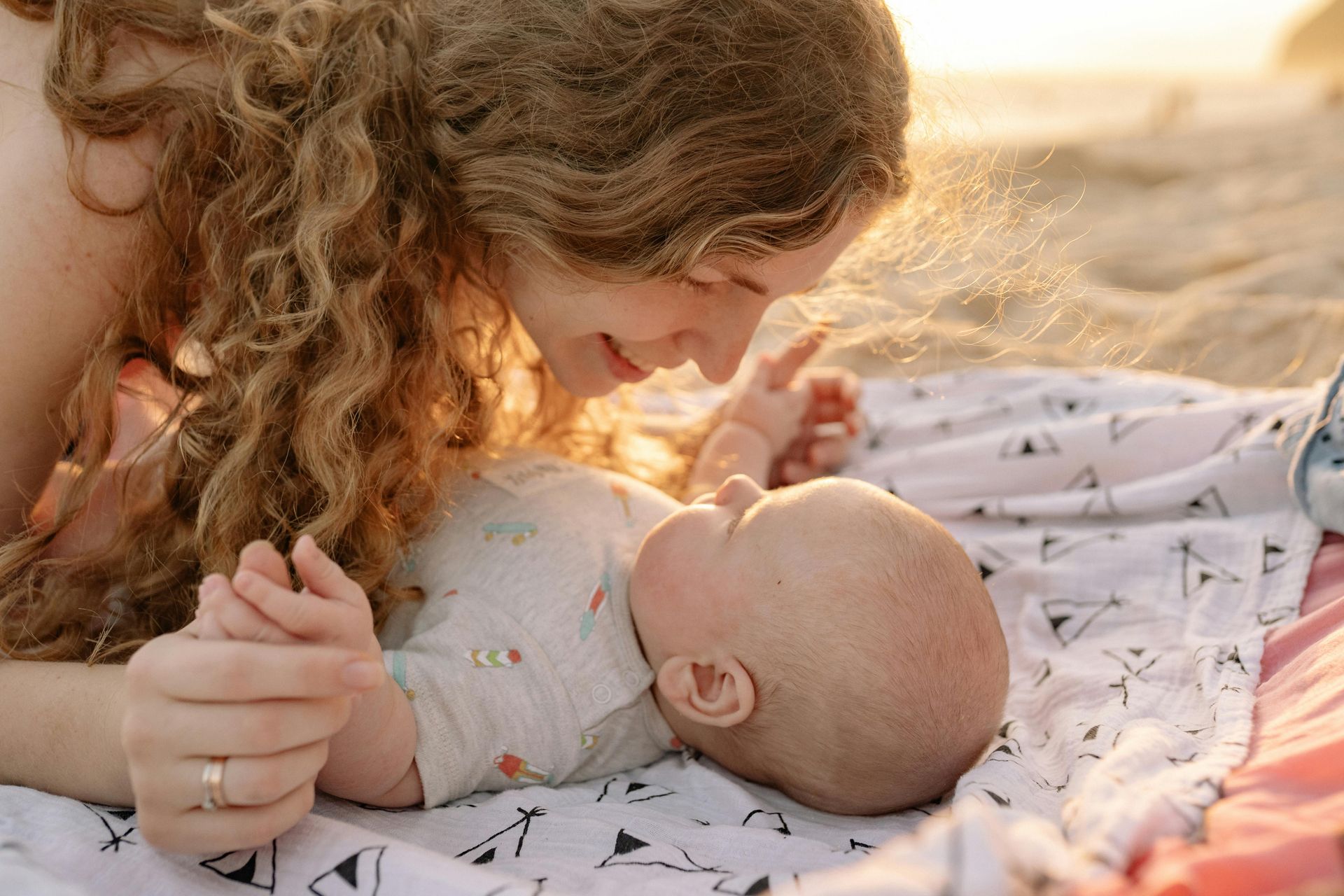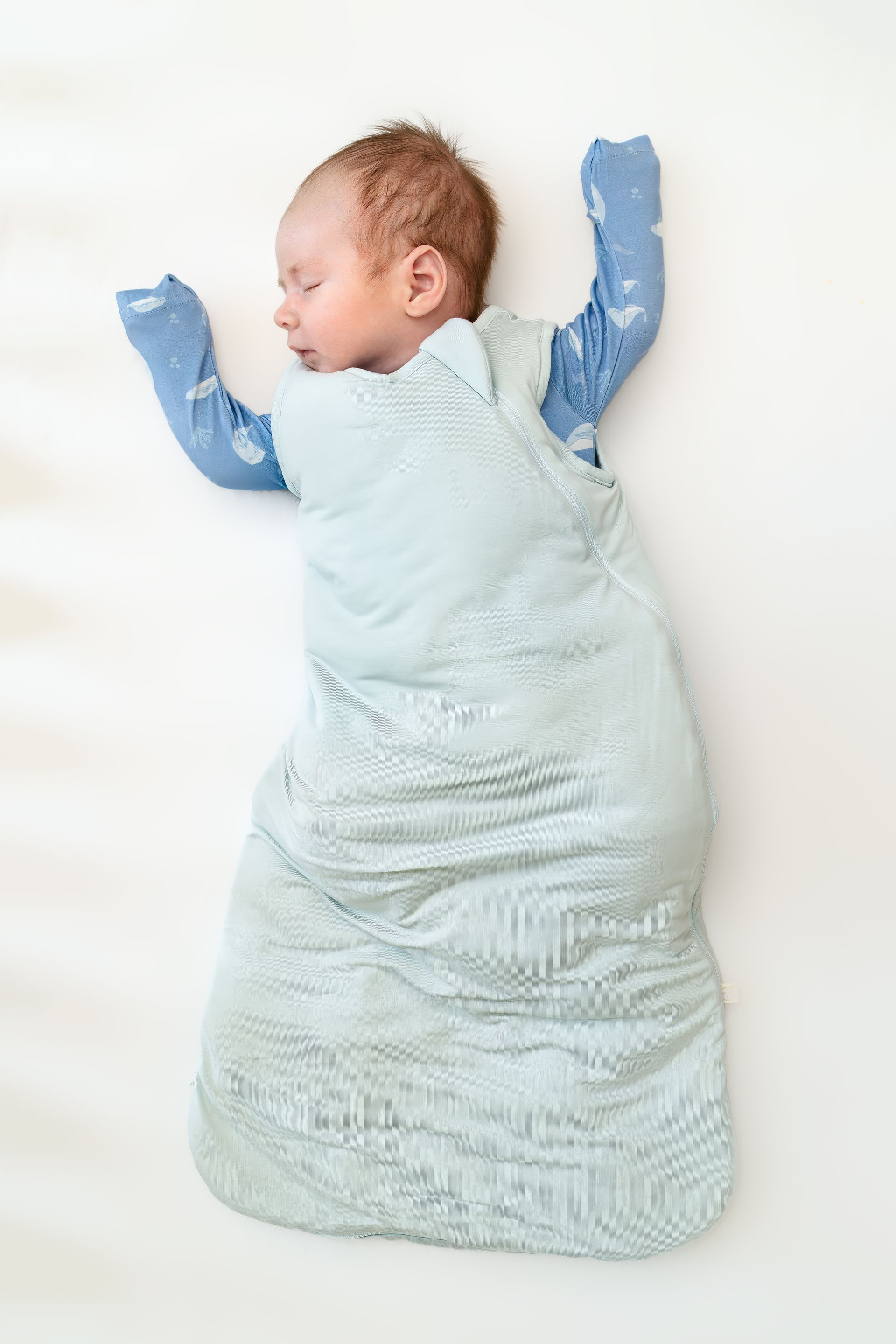What’s the Perfect Sleep Environment?
The secrets to making your kid’s bedroom more conducive for sleep
Written by Lamis Benjelloun
Parents often tell me that they want their children to be able to sleep anywhere. Meaning they want them to get used to sleeping with noise around them so that they don’t have to spend the entire evening tiptoeing around the house. Or that they don’t want to make the room too dark because their kids might become afraid of the dark. But what if I told you that the quality of your child’s sleep depends on the environment that they are sleeping in ? Well here is the deal with sleep spaces.
The perfect sleep environment is safe
First and foremost, baby’s sleep environment must be safe to ensure their safety and security. This means different things for different ages. If your babe is under 12 months, sleep environment equals a crib (or bassinet or pack-n-play) plus a firm mattress and a fitted sheet. That’s it! No bumpers, no positioners, no pillows, no blankets and definitely no toys. Babies in this age group are at risk for Sudden Infant Death Syndrome (SIDS). And while it is difficult to completely eliminate the risk of SIDS, we can reduce its incidence by keeping baby’s sleep space free of any item that may represent an entrapment, suffocation or strangulation hazard.
As your child grows, the safety of their sleep space takes on different meanings. They can now stand in their crib and reach for things that may be at arm’s length. So your mission now is to keep wires, strings, curtains or what have you away from their little arms’ reach. And if your little one is a budding gymnast and is already attempting to climb on the crib rails, remove any pillows or such items that he or she can use to step up and jump out of the crib.
As they transition out of their crib into a bed, we do still want to keep the room safe for our children in case they are up at night and walk around their room. Make sure that all furniture is bolted to the walls and that nothing can cause them to trip. Safety gates on staircases are also helpful if your kiddo has a habit of walking out of their room.
The perfect sleep environment is dark
As we get ready for sleep, the body starts producing melatonin, the sleep hormone. This production is triggered when night time is detected. Artificial lights — whether that’s coming from a night light, TV, monitor or street light — mimic natural sunlight which is associated with wakefulness. This results in a reduction in the production of melatonin. It becomes easy to understand then, that the darker the room the better the sleep.
But wait, what if you are worried that your baby is scared of the dark? Remember where your baby spent the first 9 months of their life? In absolute darkness inside the womb, so young babies are not scared of the dark. This becomes an issue later in the toddler+ years when their imagination starts running wild. But you, as the caregiver, might need a night light to see your way around a night feed or diaper change. In that case, choose a dim light that has a red or orange tone. These tones are less disruptive to levels of melatonin than the blue and white lights.
Here is a pro tip: use black-out curtains in your kids’ rooms to completely darken their room and block out sunlight during naps and bedtime. They are also handy if any streetlights can be seen from their windows.
The perfect sleep environment is cool
As you begin to prepare for sleep, your body’s temperature starts to drop. This is due to internal temperature shifts that happen during the near 24 hour period known as circadian rhythms. In fact, your body’s temperature continues to drop until it reaches its lowest point around dawn. As the temperature of the sleep environment can affect your own body’s temperature, it can risk disrupting your sleep. The same goes for babies. So keep the room temperature cool to honor the body’s need to drop its own temperature. I could tell you an exact range to set your A/C to but you are probably the best judge of whether your baby looks cool and comfortable or hot and flustered. Always make sure that they are not sweating or that their cheeks are not flushed. And the best way to gauge their body’s temperature is usually not their extremities (hands and feet), go ahead and stick your fingers or hand down their neck or in their chest to have a better sense of how warm or cold they are.
The perfect sleep environment is quiet
Environmental noises, such as traffic or regular house noises, can affect a baby’s sleep and fragment it. In fact, research shows that noise during sleep can alter the amount of time you spend in certain sleep stages. So while your best friend may tell you that she worked hard to get her baby to sleep through any noise, it is in fact better for them to sleep in a quiet environment. But if you live in a busy city or have older children or are just a normal human being who wants to maybe catch up on Netflix when your baby sleeps, you know that absolute silence is not possible. In that case, you can add a constant background noise, or white noise, that can mask any sounds that are out of your control. This way, baby can sleep in an environment that has an even tone and volume of sound to counteract the effect of noise disturbances. You can achieve this through a white noise machine or app, but you can also get the job just as well done using a fan or A/C. Should you opt for a white noise machine, remember to think about safety. Use your common sense to make sure its volume is not too loud and that the machine is placed far enough from baby. For reference, the the American Academy of Pediatrics recommends not exceeding a volume of 50 decibels and that the machine should never be placed inside the crib or on the crib rails.
So the next time your sister, friend or neighbor rave about how their baby can sleep just about anywhere or through anything, find comfort in the fact that you know that your child’s sleep quality is much better because their sleep environment is safe, dark, cool and quiet.





